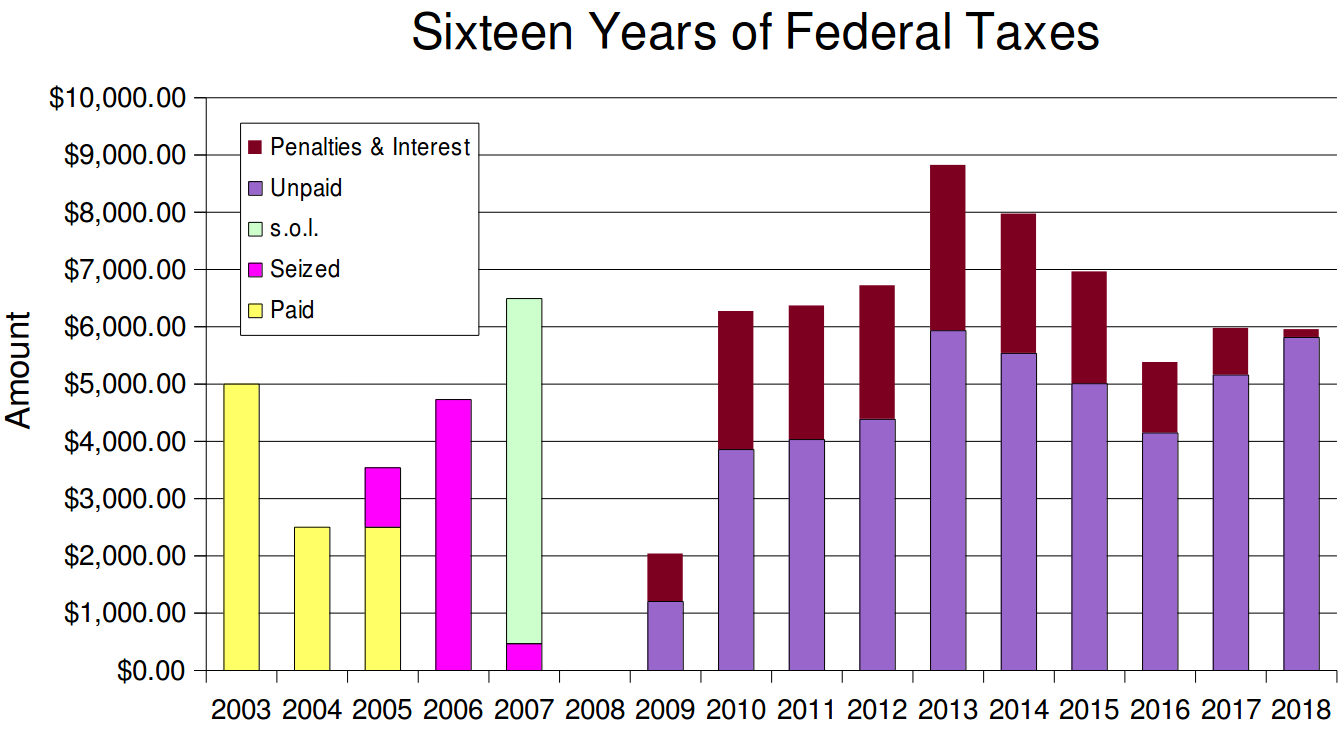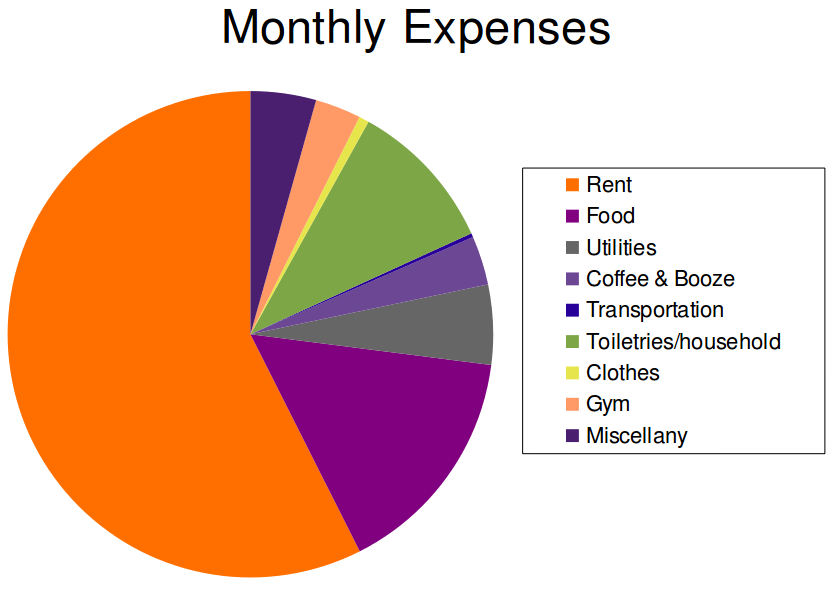Picket Line Annual Report
(For the Full Article by David Gross, including the detailed 1040: A Walkthrough click here. Links to previous Picket Line articles can be accessed by clicking on the “♦” symbols.)
Tax Resistance
, the U.S. began its “shock and awe” attack on Iraq. For me, this was the last straw and so I started what I then called “an experiment” in tax resistance so that I would no longer feel as complicit.♦
My goal was to stop financially supporting the U.S. government.
I hoped at first to do this legally by lowering my income below the federal income tax line, so I quit my job to start my own small business and I began taking advantage of additional legal tax deductions and credits. This has turned out to be a largely successful method of legally avoiding federal income tax, as well as a rewarding way of making a living, and I continue to operate this way today.
However, I have been assessed a self-employment tax most of these years (this is different from the income tax — much like the FICA tax withheld from the paychecks of employees — but also goes to the federal government). In I decided to stop paying this tax as well. I have not found a useful way to do this legally, and so I have simply refused to write the check. Because of this I have been racking up an unpaid tax bill which, along with penalties & interest added by the IRS (minus a bit that they’ve managed to seize from me over the years, and some that is uncollectible due to the statute of limitations) now adds up to something in the neighborhood of $62,000.
My two-track strategy of legally avoiding income tax while non-legally refusing to pay self-employment tax is somewhat awkward to explain, but has been working for me so far. This year, however, because of changes in the tax law and my overreliance on some incomplete descriptions of those changes in the popular press, I stepped over the federal income tax threshold and was assessed a little income tax as well.
The IRS has on a few occasions levied bank accounts, with some success: They have seized about $6,000 of the total of about $75,000 that I have refused to pay. I don’t have a fail-safe plan to hide my assets, so I expect that the IRS may continue to seize money when they find it, though lately they haven’t shown much enthusiasm for the hunt.
They haven’t taken anything at all from me in several years, or even seem to have tried, though they still send me pleading letters from time to time.♦♦♦♦ Their recent lack of action may mean they’ve run out of easy seizure targets, or it may mean my overdue amount falls under the threshold at which they start trying harder (budget cuts and other crises have caused them to back off on their enforcement). They may also just be biding their time, as the statute of limitations deadline on the oldest remaining unpaid amount doesn’t run out until .
A Statute of Limitations Success
That said, last year for the first time since I started resisting, one of my tax years did reach that 10-year statute of limitations deadline for collection.♦ I had originally been assessed $3,695 in federal taxes for . Over the years, the IRS had added about $2,800 in penalties & interest to that total. Once, they managed to seize $469 from a bank account of mine, which they applied to that year. But the remaining amount — over $6,000 — is now forever out of their grasp. I wrote a check to the Prisoners Literature Project for the unseized portion of my original tax bill to celebrate and to finally practice some of that tax redirection.
A Tax Lien
Last year, for the first time since my tax resistance began, the IRS filed a formal tax lien against me in our local court system. (This would make it easier for them to seize money from me if I were to receive settlements or other court-mediated sources of money, and it puts potential creditors on notice that the agency may step in and take money from me before I have the chance to pay them back.♦)
The lien has not yet had any practical effect on my life or my resistance, although I’ve been getting an awful lot of advertisements in the mail from shady law businesses, and plenty of automated phone calls — I haven’t bothered to answer them, but I suspect they’re from people who want me to buy their “pennies on the dollar” tax debt negotiation services.♦
Passport Worries
The total amount I owe at this point is well over the threshold at which the IRS is supposed to notify the State Department that I ought to be forbidden a passport and perhaps ought to have my passport revoked. So far as I know, this hasn’t happened yet (and they’re supposed to notify me if it has). In fact I applied for a renewed passport last year, and the government sent it out to me without complaint.♦
My 2018 Federal Tax Resistance
I only yesterday finished assembling all of the myriad forms I need to file my taxes this year. Just as the politicians promised, I was able to file my return on a postcard (plus eleven supplementary schedules and forms). After all the dust settled, it turned out that I “owed” and refused to pay $5,951 in federal taxes: $5,554 in self-employment tax, $259 in federal income tax, and a $137 penalty for not paying in quarterly installments like I’m supposed to.

a chart showing my last sixteen years of federal taxes
Sustainability
I want to continue to resist taxes over the long term, so it is important (if I want to stick to the below-the-line method) that my expenses remain low enough that my income-tax-free income is sustainable. was a good year for me income-wise. I brought in more than $39,000 in profit from my business.
I discovered late in the year that the last big federal tax legislation unexpectedly benefited a little guy like me. I can take advantage of the “20% qualified business income deduction” for small business owners. This means I could have earned even more money (up to around $41,000) last year without owing any income tax on it.
Which is good, as my expenses also have risen in recent years. Rents in my part of California have been rising fast, and rent now amounts to over 60% of my annual expenses. More than half of the taxable dollars I spend go just to keeping a roof over my head. I haven’t done the sort of close, day-by-day look at my spending as I have done in years past, but as best as I can estimate, my regular expenses for things like rent, utilities, food, and transportation that I must pay for out of below-the-tax-line income came to about $1,500 per month, or $18,000 a year:

a look at my typical monthly expenses
Not included in the above pie chart are any business expenses that I can deduct from my income, health expenses (which I pay from my pre-tax Health Savings Account), my self-employment tax assessment (half of which I can deduct), or money I’m saving for retirement (which I do in tax-deferred accounts).
My transportation budget is very low because where I live it’s pretty easy to get around on bike and so I don’t own a motor vehicle and rarely need to use one. I’ve been learning to do my own bike repairs and maintenance at the local “bike kitchen,” which also keeps the costs low.
My health-care expenses are a little higher this year as I joined the YMCA gym across the street. My health insurance expense may rise a bit more in the coming year too, as my increased income may have the result of kicking me out of my excellent Obamacare subsidy bracket. I haven’t done the calculations on this yet. In any case, I can take my health insurance premiums as a business expense, so at least it doesn’t count against my below-the-tax-line spending.
My yearly living expenses took most of my “under the tax line” budget, leaving me very little wiggle room for unexpected expenses or splurging. If I budget-in the imposed self-employment tax, which I don’t intend to voluntarily pay, but which I expect may be seized, that would come to another $5,500 or so of expenses, half of which also counts against the under the tax line budget (and would put me over my limit).
Post by David Gross





Thanks for your resistance David, and careful accounting. May you pass more 10 year statutes of limitation on collection! :). Don’t forget about the War Tax Resisters Penalty Fund (http://wtrpf.nwtrcc.org/) if the IRS should manage to collect penalties on you again.
I’m amazed that s person can earn 41k without owing taxes—still makes it tough to survive in places with whacko housing markets. Thank you again for your public statement and your resistance.
A fascinating a look at some of the normally behind the scene details of refusing to pay for war! Thank you for being so open with your finances and your tactics. From the president on down many people don’t like to talk about their personal income for some reason.
Thank you for your endurance and ethical behavior. The only way to stop war and weapons is through tax refusal. My wife and I have refused taxes for over thirty years. I was garnished once to the tune of $2,000, but that was the only time they got some of my money from work. Peace to you and all resisters.